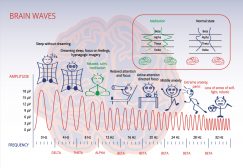Definition
noun
(cytogenetics) A methylated derivative of colchicine capable of depolymerizing microtubules and arresting cells in metaphase
Supplement
In cytogenetics laboratory, colcemid is used in chromosome analysis. It is capable of depolymerizing microtubules. It does so by binding to microtubule plus end and suppress microtubule dynamics (at very low colcemid concentration) and by promoting microtubule detachment from microtubule organizing center (at high concentration).1
Colcemid is a mitotic inhibitor. It can inactivate spindle fiber formation. It binds to the protein tubulin, thereby preventing the formation of spindle fibers. It can also destroy those that have already been formed. 2 Thus, it is used to arrest the cells in metaphase during cell division, and thereby allow cell harvest at metaphase for karyotyping. The longer exposure to colcemid means more metaphase cells may be collected, however, it may also result in collecting shorter chromosomes since the latter condense as they go through the metaphase.2
Synonym:
See also:
Reference(s):
1Jordan, Mary Ann; Wilson, Leslie (2004). “Microtubules as a target for anticancer drugs”. Nature reviews. Cancer 4 (4): 253–65. doi:10.1038/nrc1317
2Gersen, M. and Keagle, M. (2013). The principles of clinical cytogenetics. N.Y.: Springer Science & Business Media.







